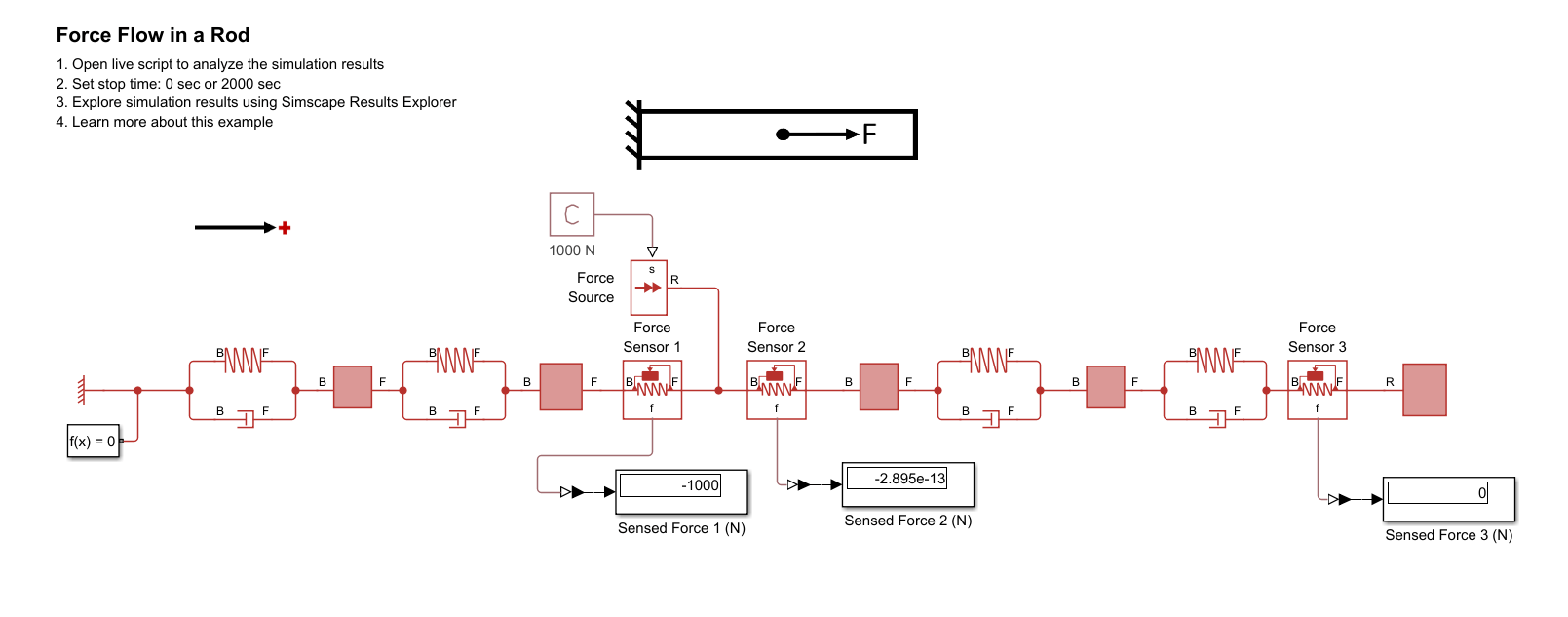Translational Spacer (PB)
Libraries:
Simscape /
Foundation Library /
Translational /
Elements
Description
The Translational Spacer (PB) block maintains a fixed length between ports B and F during simulation:
Connections B and F are position-based mechanical translational conserving ports. Length is positive when port F has a more positive position than port B. The spacer force acts from port B on port F. Positive spacer force drives port F in the positive direction. When length is positive, positive spacer force corresponds to the spacer in a state of compression.
The block has no parameters. You specify length as an initial variable target.
Variables
To set the priority and initial target values for the block variables prior to simulation, use the Initial Targets section in the block dialog box or Property Inspector. For more information, see Set Priority and Initial Target for Block Variables.
Nominal values provide a way to specify the expected magnitude of a variable in a model. Using system scaling based on nominal values increases the simulation robustness. Nominal values can come from different sources, one of which is the Nominal Values section in the block dialog box or Property Inspector. For more information, see Modify Nominal Values for a Block Variable.
To specify length:
For a known length, specify it as a high-priority target.
For an unknown fixed length, specify any value and set the priority to low or none. Then the solver computes a value for the length during model initialization.
Examples
Ports
Conserving
Extended Capabilities
Version History
Introduced in R2024b
